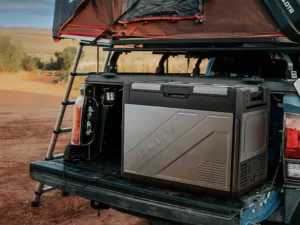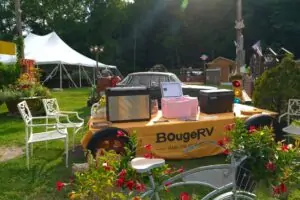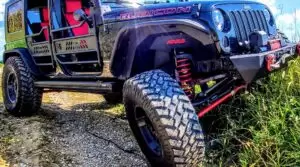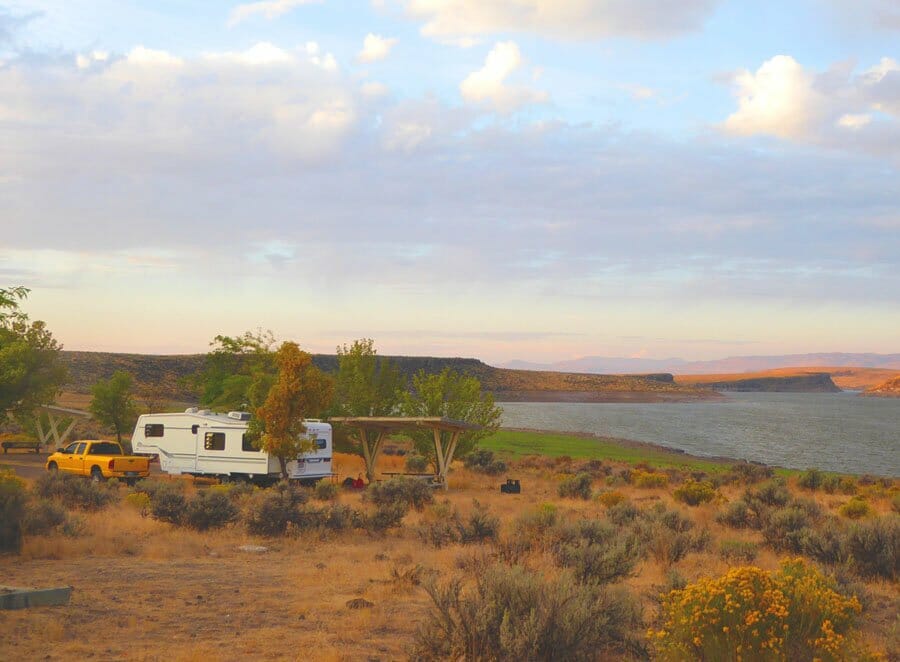
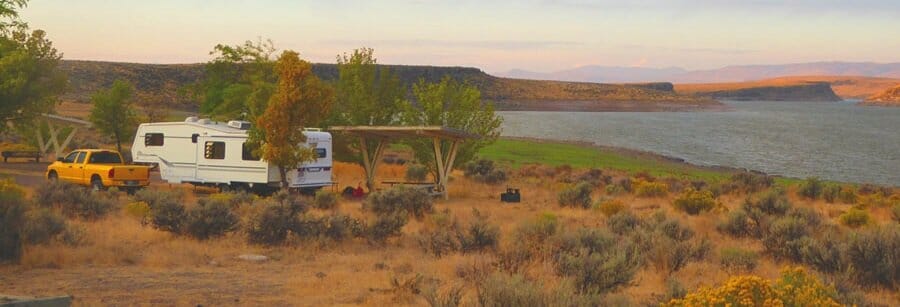
While some types of RVs are more off grid friendly for boondocking than others, there are a few features that need to be considered when RV shopping, if your goal is to camp off grid. While a 4×4 truck camper has a higher clearance and better off road ability, a Class A will have larger fresh, grey and black tanks, as well as a bigger refrigerator, allowing for a longer stay. What you ultimately choose is up to you, but here are five things to keep in mind for a boondocking RV.
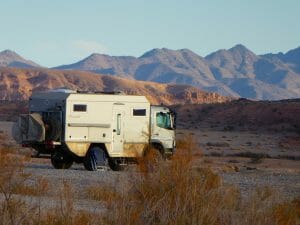 Ground Clearance
Ground Clearance
While many camping areas are accessible by almost any RV, the more ground clearance you have, the more options you will have in off grid locations. A good ground clearance can get you to the more isolated areas, and down rutted dirt roads. If going far off the main road is your goal, then a 4×4 truck camper or a light weight pop-up camper, with a high clearance would be the best choice.
Fresh & Gray Water Capacity
We each need approximately 3 gallons a day to drink, cook and bathe. When you run out of fresh water, it will be time to break camp, and go for more. Therefore, a large capacity fresh water tank is essential. Anything less than 60 gallons will be too small for a couple. *Note: Some RV manufacturers may include the water heater capacity in the total fresh water capacity, so make sure you know the real fresh water tank capacity.
You also need to be concerned with the gray water holding tank. While there are ways to minimize waste water, and legal ways to dispose of it, a large capacity gray tank is desireable, and something important to consider when choosing your RV for boondocking.
You may be asking, what about the black tank? Running out of fresh water or filling your gray tank to capacity will happen before your black tank needs dumping. *Note: You can also extend the capacity of your gray tank, by bailing dish water into the black tank.
A Generator
Many RVs, especially Class A, B and C motorhomes, have built in generators, but many don’t, such as travel trailers and 5th Wheels. If you want a trailer or 5th, consider how you might transport and store a heavy generator; you can store and transport the generator in the bed of your pickup, or if you buy a motorhome or truck camper that does not have a built in generator, on a bumper rack. And remember, you don’t want to store or operate a generator in a compartment that is not air tight from the living area of the RV.
Solar Power
Many newer RVs will come pre-wired for solar panels, making it easier to install the panels. If you are shopping for a used RV, one that already has solar installed would be preferable.
Those who are full time boondockers have at least 300-400W of solar, so take a look on the roof, to see if there is room for the panels. Portable suitcase style solar panels are an option, but you’ll need room to store them, and under certain circumstances, you may not want to leave them out where they can be stolen.
Room for Extra Batteries
Conserving your battery power is essential when boondocking. While you can survive with just one battery, you will last longer with a larger battery bank. A minimum of two quality deep-cycle batteries is recommended. Make sure the RV you are looking at has a rack designed to hold two deep-cycle batteries, and possibly a solid storage compartment to add more (batteries can weigh 70-80 lbs, each).


